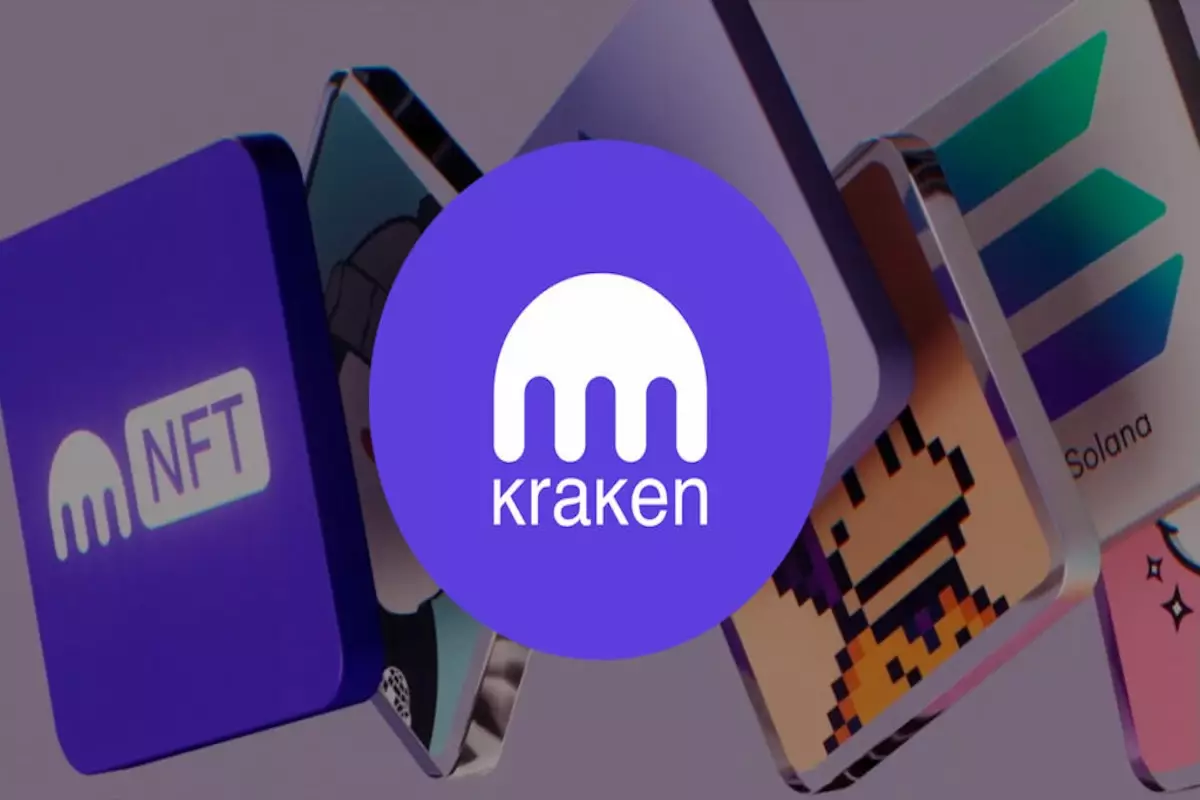In a significant development that reverberates through the cryptocurrency and NFT sectors, Kraken, a leading cryptocurrency exchange, has announced the closure of its NFT marketplace. This decision, which marks a substantial pivot for the company, comes as they choose to refocus their resources on emerging projects and innovative technologies. Set to enter a phase of complete shutdown in three months from its recent withdrawal announcement on November 27, Kraken is redefining its priorities amid a rapidly evolving market environment.
This closure signals a strategic attempt to align with broader industry trends that indicate a cooling interest in NFTs. Kraken’s management has explicitly stated that their decision is guided by an urgent need to adapt to the shifting landscape of crypto technology and user demands. Among the bright prospects on the horizon for Kraken is the anticipated launch of their own blockchain in 2025, a bold venture that demonstrates their commitment to long-term growth and innovation.
The decision to discontinue the NFT marketplace is not an isolated incident but rather a reflection of the larger challenges plaguing the NFT sector. Since April 2024, the market has seen a troubling decline in trading volumes, consistently remaining under the $200 million mark weekly. While certain projects, like CryptoPunks, continue to draw interest, the overall NFT ecosystem has stagnated. The stagnation has prompted many platforms, including Kraken, to reevaluate their roles in this once-booming market.
Kraken’s exit is indicative of a trend where several prominent crypto platforms are reconsidering their focus amidst fluctuating demand. Their departure from the NFT scene could potentially reshape the market landscape, compelling both users and creators to find alternative venues for their digital assets. Collectors are thus faced with a crucial task: identifying platforms like OpenSea and Rarible, which offer full-bodied ecosystems for trading and protecting their NFTs.
As Kraken’s NFT marketplace shutters its doors, collectors and artists must navigate a shifting terrain. The transition primarily involves transferring their NFTs either to a Kraken Wallet or exploring self-custodial options to maintain ownership of their assets. For those who have relied on Kraken’s platform, this shift may be daunting yet necessary.
Marketplaces like OpenSea and Rarible not only provide robust trading frameworks but also boast extensive user bases for increased visibility. Additionally, newcomers with unique features and user-friendly designs could emerge, leading to more competition and options for NFT enthusiasts. It is essential for collectors to stay informed and upgrade their platforms to avoid complications during this transition.
Moreover, the closure of Kraken’s marketplace may spur innovation within the NFT sector itself, as rival platforms now have the opportunity to capture Kraken’s user base with enhanced security protocols and improved trading experiences. The need for simpler and more intuitive paths to trading will be paramount, especially as security remains a cornerstone of user trust.
Kraken’s closure serves as a stark reminder of the volatility inherent in the cryptocurrency and NFT spaces. As trends continue to fluctuate, the remaining marketplaces will need to adopt adaptable strategies focusing on innovation, security, and user engagement. There lies an imperative for these platforms to not only innovate but also effectively address regulatory challenges that may arise in this evolving environment.
In contemplating the future, NFT marketplaces must strike a delicate balance by promoting features that resonate with user expectations while simultaneously safeguarding assets and ensuring compliance. With Kraken’s move towards blockchain development, the potential for growth through innovation is apparent.
As Kraken turns the page from its NFT marketplace to a new chapter in blockchain technology, the industry collectively stands at a crossroads. The NFT landscape faces numerous challenges, yet it also harbors significant opportunities for growth and transformation. As platforms vie for relevance and user loyalty, the next few years could be defining for NFT marketplaces. Those willing to innovate, prioritize security, and offer unique trading experiences will likely thrive, while others might find themselves lost in a cluttered market.
The journey ahead mandates agility and ingenuity from all involved—collectors, creators, and marketplaces alike—as they adapt to evolving consumer needs and an ever-changing digital frontier.

